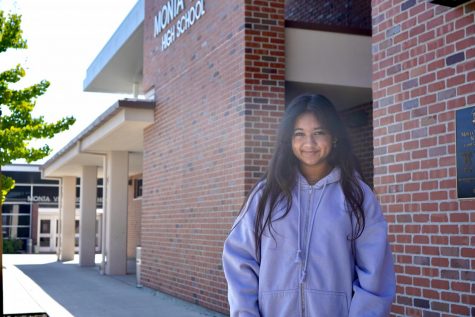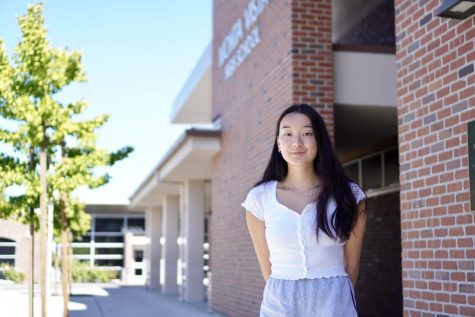Inclusivity and solidarity with sexual assault survivors
Investigating the impact of sexual assault for everyone, including male and non-binary survivors
June 1, 2021
Los Gatos High School alumni Gavin Finkle’s knowledge on sexual assault came from different aspects of his life including his family members and friends. After realizing that the issue was virtually everywhere, he helped create the social media accounts @metoolghs and @fromsurvivorsforsurvivors in (early July 2020). Both accounts are public Instagram platforms that were created for sexual violence survivors at Los Gatos HS to share stories, spread awareness and educate their combined 5,000+ followers on social media.
“[Sexual assault] is definitely a symptom of the patriarchy,” Finkle said. “If I’m just going to put it very frankly, I think men are expected to be hyper sexual. And then there’s a variety of expectations for women. If they express themselves sexually, they’re called all sorts of horrible names. If they don’t express themselves sexually, they’re called a prude. And, anywhere in between, women can’t win.”
Through managing the @metoolghs account, Finkle has observed certain trends in the gender of victims who reach out.
“There are a few male survivors who have shared their stories, though they make up a minority,” Finkle said. “I would say the smallest group of people who have shared their stories with sexual assault are non-binary students from Los Gatos High School. If we’re going to put it out of ratio, it’s probably a solid 85% of female survivors that send in their stories.”
He believes that one reason why people pay little acknowledgement to the stigma around sexual assault of men is because of society’s deep rooted misogyny.
“For males, I’ve encountered a lot of people who very innocently, kind of like it doesn’t really register in their mind, that a man can be on the receiving end of sexual assault,” Finkle said. “Even further, men can be on the receiving end of sexual assault from a woman.”
Finkle also believes the expectation that is set in a patriarchal society where men are considered to be inherently strong and women are considered to be naturally weak perpetuates an image of men always being the “abuser,” causing people to disregard male survivors of sexual abuse. This is seen in the Roman Catholic Church cases, where male children were among the adolescents sexually abused by priests or clergy and many were bribed into silence or stayed silent due to fear.
“We need to make this [a more open space] and have some really difficult conversations about [male sexual abuse],” Finkle said. “Women are definitely far more at risk of being survivors of sexual violence, but we can’t exclude anybody from this — we have to make this [space] as inclusive [of a] space as possible.”
Junior Sotiris Kougiouris shares that discussion about sexual assault is uncommon among many guys in general. Kougiouris agrees with Finkle about how recognizing and listening to the stories of male survivors can help encourage other men in opening up about their experiences as well.
“[Boys] don’t really talk about [these issues] because it feels like they’re not supposed to and like it ruins their ‘image’ so I think just validating them helps a lot,” Kougiouris said. “And [it] would make it easier on a lot of guys.”
School-based therapist Richard Prinz has not worked with any male sexual assault survivors at MVHS; however he shares his perspective about gender roles and how they come into play in terms of power, specifically with regards to the sexual misconduct allegations against former president Donald Trump.
“We internalize oppression,” Prinz said. “You’ll hear Trump supporters say, ‘Oh well, you know, he’s just being the guy.’ Then, if you question them further, it’s like, ‘Well does your husband speak that way? No. Do you want your children to speak that way? No.’ But, ‘Oh he’s just a guy’ and they’ll even say like, ‘A president should be a male and shouldn’t be a female.’ I heard an interview like that. But why? ‘Oh, because women are too volatile.’”
Prinz believes that casting a negligent perspective towards sexual assault as a whole can be traumatizing — it can take a toll on one’s mental health. He stresses that it is important for survivors to report perpetrators.
He further connects male sexual assault and the impacts that sexual abuse can have on someone by sharing previous students’ stories and how they were able to use their experience to empower the MVHS community.
“[Students] talked and decided to do a lunchtime forum where they would be a panel, and people could come in here about their experiences, and to try to educate people and to hold the perpetrators accountable,” Prinz said. “It really empowered them. Instead of being a victim now, they were survivors and they were spokespeople and they were helping other people. And so I think that’s the avenue to go with it — you’re not diminished in any way, you’re not weakened in any way.”
With Prinz advocating for a mental health class and Finkle sharing his opinion on a broader sexual education curriculum for everyone, both believe that the school system should implement classes where education stretches beyond the basic core curriculum and also teaches life skills.
“High schools also need to have a comprehensive and ongoing sexual education curriculum that includes sexual assault, consent, particularly and also, this is tangential, but LGBTQ+, safety and sexual education, that all needs to be included,” Finkle said. “This is personally my opinion, but I think also high schools need to shift away from abstinence-based education and more to safety based education because abstinence-based education actually doesn’t focus very much on consent. There’s clearly an issue with consent here and people not understanding consent. So consent needs to be at the center of sexual education and sexual education needs to be far more comprehensive.”
Kougiouris believes events like the SAFER Choices assembly that MVHS held on Jan. 20 with Mike Domitrz can stir more discourse surrounding sexual safety and consent.
“I’m glad [the school] did that [SAFER Choices Panel] and [information] like that is good, and by not hiding it as a school, not making it something that’s taboo can definitely help make the stigma go down and treat it like it’s a problem,” Kougiouris said. “It shouldn’t be something that’s ignored or put aside and still [maybe schools can] even add [it] to the curriculum who knows, but just not making it like something that’s never talked about. So [that would be] a good first step.”
After seeing an increase in public informational/motivational accounts and posts on social media regarding male and non-binary survivors speaking up about how sexual assault can affect all genders, Finkle recognized a shift in progress.
“They were so dedicated to increasing funding [for] male survivors and non-binary survivors,” Finkle said. “So I think it’s definitely including part of the conversation, but I think, in general speaking, I think we only really consider sexual violence as something that happens to women. And I think we have a long way to go in unpacking … I can only speak for America, because I’m American, but the problem of sexual violence here in the United States.”
According to Finkle, regardless of the identity of the victim or perpetrator, sexual assault is an issue that many people face, infact, one out of every 6 women in America are survivors of rape or attempted rape and one out of every 10 survivors of rape are male while 47 percent of all transgender people have experienced sexual assault in their lives. It is important that each individual’s experience should be acknowledged seriously.
“Male survivors, you are valid,” Finkle said. “You are not alone. You are not weak. You are not broken. There’s nothing wrong with you. You are just as much of a man as anybody else. No matter your gender, no matter the gender of your attacker, no matter your sexuality, no matter the sexuality of your attacker. Your trauma is valid. You will rise back up and you will feel perfect.”


















